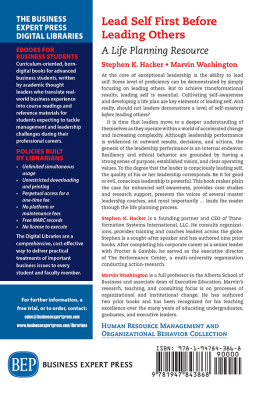How to Lead When You Dont Know Where Youre Going
How to Lead When You Dont Know Where Youre Going
Leading in a Liminal Season
Rev. Susan Beaumont

An Alban Institute Book
ROWMAN & LITTLEFIELD
Lanham Boulder New York London

The names of the churches in this book are fictional. Any resemblance to actual churches is purely coincidental.
Published by Rowman & Littlefield
An imprint of The Rowman & Littlefield Publishing Group, Inc.
4501 Forbes Boulevard, Suite 200, Lanham, Maryland 20706
https://rowman.com
6 Tinworth Street, London SE11 5AL, United Kingdom
Copyright 2019 by The Rowman & Littlefield Publishing Group, Inc.
All rights reserved. No part of this book may be reproduced in any form or by any electronic or mechanical means, including information storage and retrieval systems, without written permission from the publisher, except by a reviewer who may quote passages in a review.
British Library Cataloguing in Publication Information Available
Library of Congress Cataloging-in-Publication Data
Names: Beaumont, Susan, author.
Title: How to lead when you don't know where you're going : leading in a
liminal season / Rev. Susan Beaumont.
Description: Lanham : Rowman & Littlefield Publishing Group, Inc., 2019. |
Includes bibliographical references and index.
Identifiers: LCCN 2019010261 (print) | LCCN 2019981048 (ebook) | ISBN
9781538127674 (cloth : alk. paper) | ISBN 9781538127681 (pbk. : alk.
paper) | ISBN 9781538127698 (ebook)
Subjects: LCSH: Liminality--Religious aspects--Christianity. | Christian
leadership. | Leadership--Religious aspects--Christianity.
Classification: LCC BR111 .B43 2019 (print) | LCC BR111 (ebook) | DDC
253--dc23
LC record available at https://lccn.loc.gov/2019010261
LC ebook record available at https://lccn.loc.gov/2019981048
 TM The paper used in this publication meets the minimum requirements of American National Standard for Information Sciences Permanence of Paper for Printed Library Materials, ANSI/NISO Z39.48-1992.
TM The paper used in this publication meets the minimum requirements of American National Standard for Information Sciences Permanence of Paper for Printed Library Materials, ANSI/NISO Z39.48-1992.
Preface
I have been consulting with congregations and their leaders for over two decades. Prior to that, I worked in corporate America, in academia, and with non-profits. I left those other institutional settings to focus exclusively on the world of congregations because church utterly fascinates me. Congregations are unique covenantal communities, often saddled with organizational dysfunction. Balancing spiritual, relational, and organizational health is challenging leadership work.
Despite my fascination with church, several years ago I found myself stymied by the ministry. Many churches and synagogues were inviting me to help with strategic planning, staff team design, board development, and performance management issues. My previous two books and my earlier affiliation with the Alban Institute established me as an expert in these areas, particularly for larger congregations. My clients valued the work I was doing with them, but I was growing increasingly frustrated. The accelerated pace of decline in the mainline church was overwhelming. Nothing in my work seemed to mitigate the loss.
More importantly, I was dismayed at the growing disconnect between the spiritual and organizational lives of congregations. As I worked with governing bodies and staff teams, it was rarely evident that I was working in a faith-based environment. Frankly, some of the work that I had done in corporate America felt more sacred than the work I was doing in churches. My clients were working in overdrive to reverse decline and improve organizational effectiveness. Few were engaging God as a partner in the striving. Increasingly, I felt that the organizational work was replacing the spiritual center of the institutions I served. Something felt remarkably off.
As an antidote to my malaise, I decided to sign up for the spiritual guidance program at the Shalem Institute. Perhaps learning the skills of spiritual direction would help me integrate my faith and work life. Perhaps a difference in me would draw forth something more sacred from my clients.
I was right on one account: I was changed by the experience. My experience at Shalem was spiritually rich and deepening. I became more centered in God, better attuned to my surroundings, and more deeply present to my clients. However, the change in me didnt translate into a change in my clients systems. Bridging the divide between organizational and spiritual leadership was getting hardernot easier.
This is when I claimed a subtle but important vocational shift, discerning that I was called to function as a spiritual director to the organizations I served, not the leaders of those organizations. I wasnt certain what that meant, but the phrase tending the soul of the institution took hold of me and wouldnt let go. I began researching the topic but couldnt find a central organizing principle to ground the work. Helpful resources were available for developing spiritually centered leaders and for fostering individual discernment. I couldnt find much that helped leaders bridge the discernment work to their organizational leadership. What resources I did find were geared more toward business leaders, and I wondered why the world of business was generating better resources than the church on contemplative leadership.
Discovering Victor Turners work on liminality was an important personal discovery, a key that profoundly shifted my thinking and approach. I began to understand this season of church life as a liminal era, and that began to shape my understanding of the challenges we face. Tending the soul of the institution began to make sense when viewed through the lens of liminality. Each time I introduced liminality in a client setting, something shifted for my clients as well. Leaders began framing their challenges as a liminal experience, and this seemed to unleash fresh energy, creativity, and hope.
The book you are holding in your hands is the result of five years of prayer, thinking, and teaching around this topical shift. I do not claim to have arrived anywhere. The ideas you will read here are still very much a work in progress. But it seems right to set the ideas into print and expand the number of partners in the conversation.
How to Lead When You Dont Know Where Youre Going: Leading in a Liminal Season is meant to be a practical book of hope for tired and weary leaders who are in danger of defining this era of ministry in terms of failure or loss. This book does not attempt to describe where the church is headed. These chapters will raise many questions and provide no easy answers. You wont find five easy steps or three simple solutions to anything. There are no promises of church growth. Rather, you will be invited to stand firm in a disoriented state, learn from your mistakes, and lead despite your confusion.
The premise of this book is that traditional leadership stances and practices do not serve us well in liminal seasons. An alternative way of being and a different body of work are needed to negotiate liminality. A chapter outline will help you negotiate your way.
Next page





![Maxwell - The 360 [-degree] leader: developing your influence from anywhere in the organization](/uploads/posts/book/218782/thumbs/maxwell-the-360-degree-leader-developing-your.jpg)





 TM The paper used in this publication meets the minimum requirements of American National Standard for Information Sciences Permanence of Paper for Printed Library Materials, ANSI/NISO Z39.48-1992.
TM The paper used in this publication meets the minimum requirements of American National Standard for Information Sciences Permanence of Paper for Printed Library Materials, ANSI/NISO Z39.48-1992.